Report Back from SGO 2023: What’s New in Cervical Cancer?
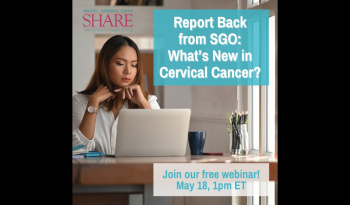
Curious about what’s new in cervical cancer research? Join Dr. Evelyn Cantillo, gynecologic oncologist at Weill Cornell Medicine, as she shares the latest updates from the Society of Gynecologic Oncology (SGO) 2023 Annual Meeting on Women’s Cancer. Dr. Cantillo will also highlight what the research presented at the conference means for you and answer your […]
Scans and Ovarian Cancer: Everything You Want to Know

When you’re diagnosed with ovarian cancer, scans become an inevitable part of life. But what are the differences between the imaging tests? When should which scans be used? What about the pros and cons of each test? Join Dr. Kevin Holcomb, Vice-Chair of Gynecology and member of the Division of Gynecologic Oncology at Weill Cornell […]
When Cells Go Rogue and Become Breast Cancer
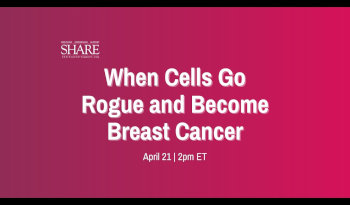
Let’s have a conversation about our bodies and learn about the why’s and how healthy cells mutate into cancer. Diva Whalen, Ph.D., Assistant Professor & Pre Health Advisor in Biology at Tougaloo College, discusses how our genetics, where we live, and stress can be major factors in how breast cancer forms, what happens once diagnosed, […]
Family Ties: Knowing Your Connection to Cancer (with MSK)
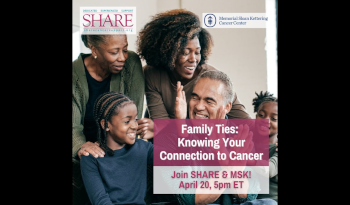
On April 20, join Memorial Sloan Kettering Cancer Center (MSK) and SHARE Cancer Support for a talk about family health history. At this talk, you will: Key Takeaways from Webinar Viewers: Learn what your family’s health history can tell you about your risk for cancer. Find out how to get genetic testing. Get helpful tips […]
When to Consider Multi-Gene Testing in Early-Stage and Metastatic Breast Cancer
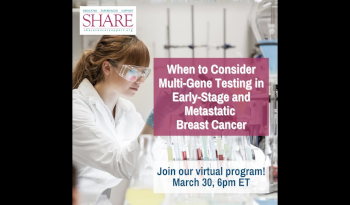
You can’t change your genes, but knowing and acting on your family health history is essential for you and your medical team in developing your treatment plan. The National Comprehensive Cancer Network (NCCN) recommends genetic testing NCCN recommends genetic testing, including the BRCA1/2 genes, for all metastatic breast cancer patients because it could change treatment […]
Blood Clots and Cancer: What You Need to Know

Did you know 1 in 5 blood clots are related to cancer and its treatment? Treatments involving hospitalization, surgery, chemotherapy, and hormonal therapy can increase your blood clot risk. In collaboration with the National Blood Clot Alliance (NBCA), this program aims to inform all cancer patients about the risk of blood clots. The speaker, Jeffrey […]
Understanding the Relationship Between Estrogen and Uterine Cancer
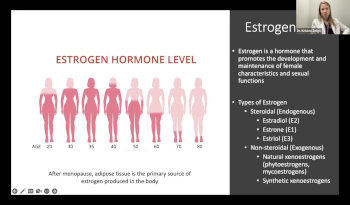
Estrogen can play a role in uterine cancer in a number of ways. Many uterine cancer tumor types are considered to be hormonally driven, especially endometrioid tumors. Obesity is a strong risk factor as it increases and produces additional estrogen levels in our bodies. Uterine cancer treatments are evolving, and today experts can treat estrogen […]
Part I: Not all DCIS is “Risky”
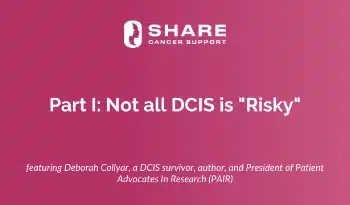
Ductal carcinoma in situ (DCIS) is considered the earliest form of breast cancer and noninvasive, meaning it hasn’t spread out of the milk duct and has a low risk of becoming invasive. In part 1 of the DCIS webinar series, you will learn about different types and grades of DCIS and why that is important. […]
Cervical Chat – Early Menopause and HRT
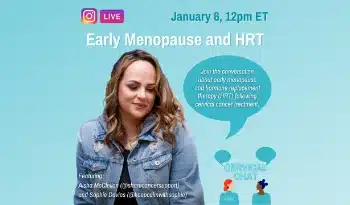
Join the conversation with Aisha McClellan (@sharecancersupport) and Sophie Davies (@keepcalmwithsophie) as they chat about early menopause and hormone replacement therapy (HRT) following cervical cancer treatment. This program will be held on Instagram Live. https://www.youtube.com/watch?v=ZjkxcMGQOWg
